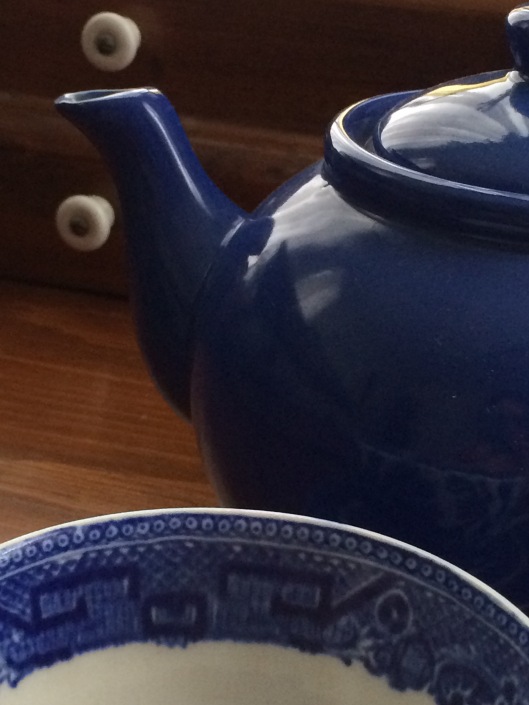Sunbeams from the August sun slip their way through iron latticework and stretch themselves out onto my balcony’s floor. My foot treads over these morning pools of light, and I am happy for their pleasant warmth before the heat of the day. I am still bleary-eyed, half-listening to the voices of John Oliver and Andy Zalztman floating out of my phone and through my open bedroom door. I am not yet awake enough to comprehend their podcast’s creative bullshittery, but that will soon come. For now, I am awake enough to water my balcony’s container garden.
The plants, encircled by their neat little pots, seem to spread themselves out, stretching in the morning sun. Basil, nasturtium, watercress, thyme, dill, and lettuce—all swollen with the quiet voluptuousness of a late summer garden. As I tip my pitcher down to wet the soil, a sunbeam sparks in my periphery. I turn towards it. There, catching the edge of a lettuce leaf is a thread of spider silk, coruscating in the morning sun. It stretches out to the iron latticework at the balcony’s edge as its crystalline twin runs a similar path eight inches above it. In between these parallel lines spirals the ingenuity and nature of a spider.
I stare at the web. It’s lovely.
I like spiders. Well, I should say that I like them in a garden setting. I do not like spiders when they drop down from my kitchen ceiling and surprise me. That sort of behavior usually gets them put in a drinking glass and promptly taken out to the back garden or balcony: you know, places that happily play to their strengths. Places where their intricate webs trap the insects that eat young and vulnerable plants.
A breeze moves through the balcony space, ruffling the lettuce leaves. But this is not the mild-mannered breeze of a summer day, this is a stiff breeze, somewhat cool, somewhat hinting at the beginning of another season—one that is usually festooned with bright leaves and cinnamon-spiced beverages. The lettuce leaf shakes violently and the thread that adorned its edge is gone, leaving the web sagging and lopsided.
Then the spider appears. It carefully picks its way across the damaged web before jumping out into the empty space between web and leaf, trailing a long, silken tendril behind it. The spider lands on the corner of the table that holds the pots, and attaches the new thread. It then climbs the thread back to its web, and begins again the process of weaving.
I walk back into my bedroom to the sound of Andy beginning an epic punrun. I should leave the spider to its work. Yes spiders are wonderful garden companions, but I love spiders the most for their creativity and courage. I admire their ability to jump out into the unknown to weave new webs, especially in the wake of damaging, unexpected winds.






